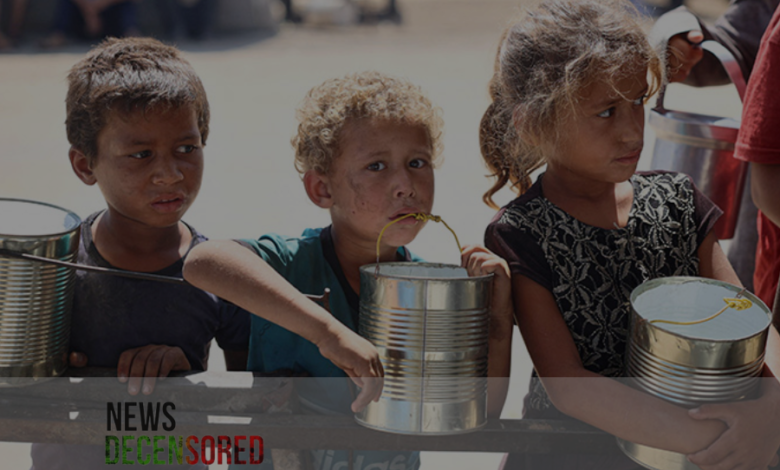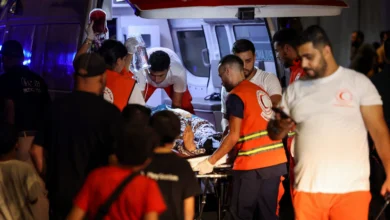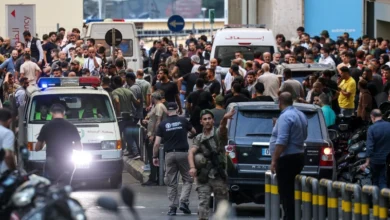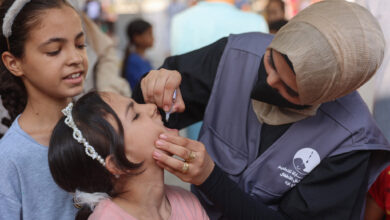Nearly 3,000 malnourished children in southern Gaza are at risk of “dying before their families’ eyes

In a statement issued on Tuesday, UNICEF noted a slight improvement in the delivery of food aid to the northern Gaza Strip. At the same time, humanitarian access to the south has decreased significantly, putting more children at risk of malnutrition.
UNICEF Regional Director for the Middle East and North Africa, Adele Khader, said: “Horrific images continue to emerge from Gaza of children dying in front of their families due to continued shortages of food and nutrition supplies and the destruction of health care services.
Unless treatment is quickly resumed for these 100 children.” 3,000 children are at immediate and grave risk of serious illness, life-threatening complications, and joining the growing list of boys and girls killed by this senseless, man-made deprivation.”
Ms Khader said the organization’s warnings of escalating child deaths due to a preventable combination of malnutrition, dehydration, and disease “should have mobilized immediate action to save children’s lives. However, this devastation continues.” She added: “With hospitals destroyed, treatment halted, and supplies scarce, we are preparing for more children’s suffering and deaths.”
The Regional Director noted that UNICEF has more food supplies already prepared to enter the Gaza Strip if access permits and stressed the need for better operating conditions on the ground that increase safety and reduce restrictions. However, she noted, “In the end, what the children need most is a ceasefire.”
Violations in Nuseirat camp:
Commenting on the Israeli operation in the Nuseirat camp to secure the release of the four hostages, the High Commissioner for Human Rights expressed its deep shock at the impact of the operation on civilians, according to its spokesman, Jeremy Lawrence.
Speaking to reporters in Geneva on Tuesday, Lawrence said that how the operation that killed and injured hundreds of Palestinians was carried out “raises serious questions about whether the principles of distinction, proportionality, and precaution – as stipulated under the laws of war – were respected by Israeli forces.”
The UNHCR spokesperson said that the taking of hostages is in itself a violation of international law, and by placing them in such densely populated areas, Palestinian armed groups are putting the lives of Palestinian civilians, as well as the hostages themselves, at additional risk from hostilities. He added: “All of these actions by both parties may amount to war crimes.”
For his part, World Health Organization spokesman Tariq Yasarevic said that the organisation sent a team to Al-Aqsa Hospital in the central Gaza Strip on the day the Israeli operation was carried out. He said that the team saw dozens of people lying on the ground, adding that it was clear that the hospital, where about 270 medical staff were working and providing care for 700 people, needed more supplies.
Yasarevic said that keeping the Rafah crossing closed further aggravates the situation, explaining that dialysis treatments at Al-Aqsa Hospital for hundreds of patients have been reduced to only two sessions instead of three sessions per week.
A WHO spokesman said that mass casualties, such as those resulting from the Israeli operation in Nuseirat, “put pressure on the already almost dismantled health system in Gaza.” He added that there are currently 17 hospitals in Gaza that provide some services, but it is difficult to reach many of them, and there are no operating hospitals in Rafah except field ones.




